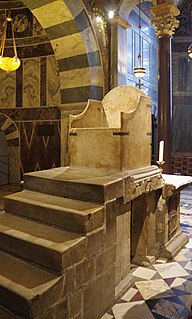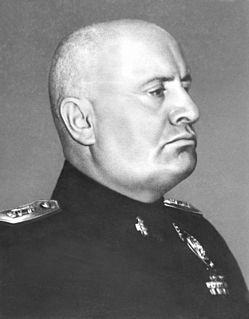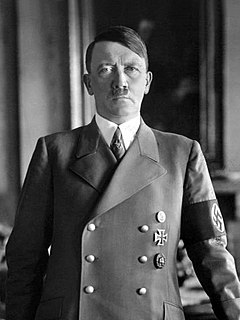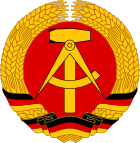The Christian Social Union in Bavaria is a Christian-democratic and conservative political party in Germany. The CSU operates only in Bavaria while its larger counterpart, the Christian Democratic Union (CDU), operates in the other fifteen states of Germany. It differs from the CDU by being somewhat more conservative in social matters. The CSU is considered an effective successor of the Weimar-era Catholic Bavarian People's Party (BVP).

The Free Democratic Party is a liberal and classical liberal political party in Germany. The FDP is led by Christian Lindner.

Alliance 90/The Greens, often simply Greens, is a green political party in Germany that was formed in 1993 from the merger of the German Green Party and Alliance 90. The party focuses on ecological, economic, and social sustainability. Since January 2018 Annalena Baerbock and Robert Habeck have co-led the party. In the 2017 federal elections the Greens came sixth with 8.9% of the votes and 67 out of 709 seats in the Bundestag.
The Natural Law Party (NLP) is a transnational party founded in 1992 on "the principles of Transcendental Meditation", the laws of nature, and their application to all levels of government. At its peak, it was active in up to 74 countries; it continues in India and some parts of the United States. The party defines "natural law" as the organizing intelligence which governs the natural universe. The Natural Law Party advocates using the Transcendental Meditation technique and the TM-Sidhi program as tools to enliven natural law and reduce or eliminate problems in society.
The Holy Roman Emperor was the ruler of the Holy Roman Empire during the Middle Ages and the early modern period. The title was, almost without interruption, held in conjunction with title of King of Germany throughout the 12th to 18th centuries.

The Christian Democratic Union of Germany is a Christian democratic and liberal-conservative political party in Germany. It is the major catch-all party of the centre-right in German politics. The CDU forms the CDU/CSU grouping, also known as the Union, in the Bundestag with its Bavarian counterpart the Christian Social Union in Bavaria (CSU). The party is widely considered an effective successor of the Centre Party, although it has a broader base.

The Social Democratic Party of Germany is a social-democratic political party in Germany.
Mixed-member proportional (MMP) representation is a mixed electoral system in which voters get two votes: one to decide the representative for their single-seat constituency, and one for a political party. Seats in the legislature are filled firstly by the successful constituency candidates, and secondly, by party candidates based on the percentage of nationwide or region-wide votes that each party received. The constituency representatives are elected using first-past-the-post voting (FPTP) or another plurality/majoritarian system. The nationwide or region-wide party representatives are, in most jurisdictions, drawn from published party lists, similar to party-list proportional representation. To gain a nationwide representative, parties may be required to achieve a minimum number of constituency candidates, a minimum percentage of the nationwide party vote, or both.

The German People's Party was a national liberal party in Weimar Germany and a successor to the National Liberal Party of the German Empire. A right-wing liberal or conservative-liberal party, its most famous member was Chancellor and Foreign Minister Gustav Stresemann, a 1926 Nobel Peace Prize laureate.

King of the Romans was a title used by Syagrius, then by the German king following his election by the princes from the time of Emperor Henry II (1014–1024) onward. The title was predominantly a claim to become Holy Roman Emperor and was dependent upon coronation by the Pope.
Elections in Germany include elections to the Bundestag, the Landtags of the various states, and local elections.

The Kingdom of Germany or German Kingdom developed out of Eastern Francia, the eastern division of the former Carolingian Empire, over the 9th to 11th centuries. East Francia was formed by the Treaty of Verdun in 843, and was ruled by the Carolingian dynasty until 911, after which the kingship was elective. The initial electors were the rulers of the stem duchies, who generally chose one of their own. After 962, when Otto I was crowned emperor, East Francia formed the bulk of the Holy Roman Empire along with Italy; it later included Bohemia and Burgundy.

General elections were held in Italy on 26 March 1934. At the time, the country was a single-party state with the National Fascist Party (PNF) as the only legally permitted party.

Parliamentary elections were held in Germany on 10 April 1938. They were the final elections to the Reichstag during Nazi rule and took the form of a single-question referendum asking whether voters approved of a single list of Nazis and pro-Nazi "guest" candidates for the 813-member Reichstag as well as the recent annexation of Austria. Turnout in the election was officially 99.5% with 98.9% voting "yes". In Austria official figures claimed 99.73% voted in favour with a turnout of 99.71%.

The Finsbury East by-election, 1918 was a parliamentary by-election held for the House of Commons constituency of East Finsbury in north London on 16 July 1918.

Legislative elections to elect members of the Imperial Council were held in Cisleithania, the Austrian section of Austria-Hungary over several days in June and July 1911. A coalition of German national and liberal parties, the Deutscher Nationalverband, emerged as the largest bloc in Parliament, holding 100 of the 516 seats. Voter turnout was 80.2%.

The Rotherham by-election, 1917 was a parliamentary by-election held for the House of Commons constituency of Rotherham in the West Riding of Yorkshire on 5 February 1917.

The 1920 presidential election in Texas was part of the United States presidential election, 1920 in which all contemporary forty-eight states voted on November 2, 1920. Texas voters chose twenty electors, or representatives to the Electoral College, who voted for president and vice president.
















